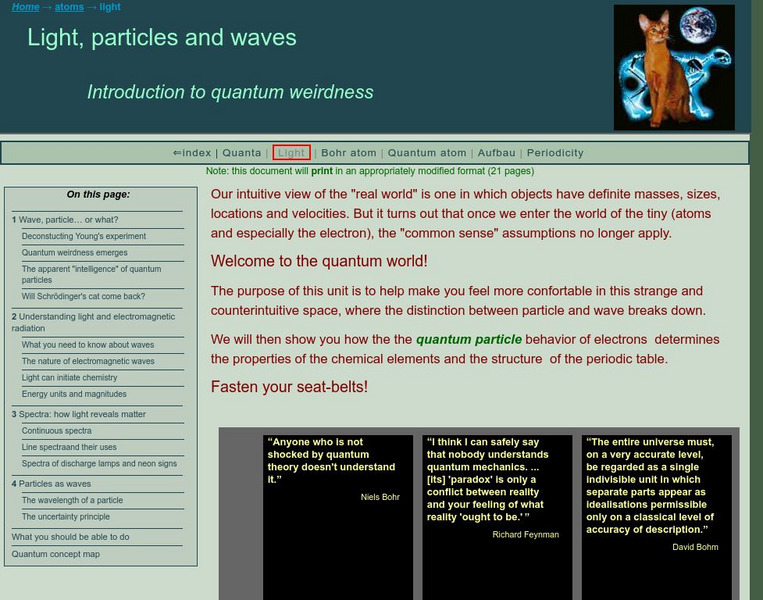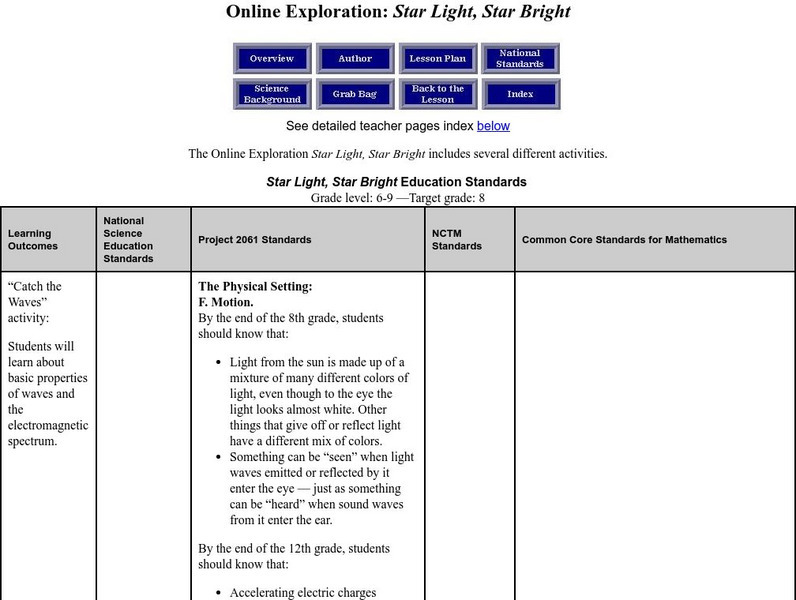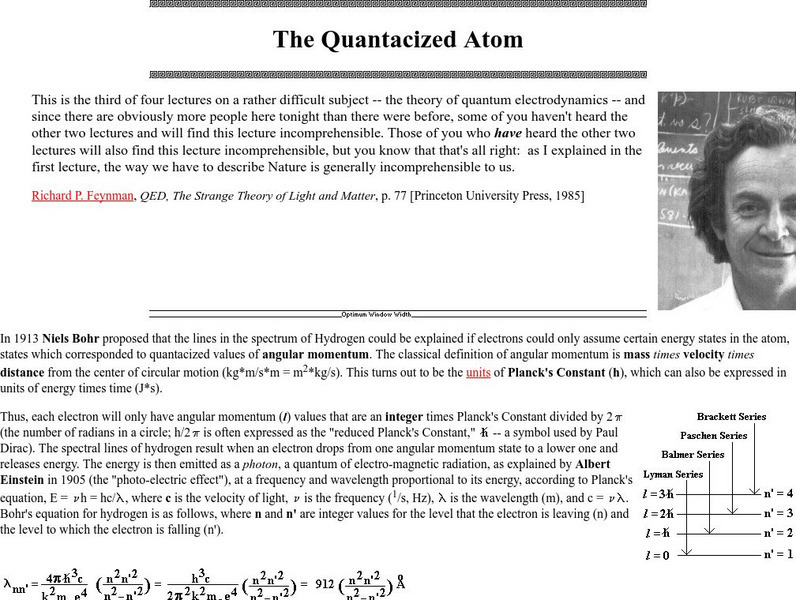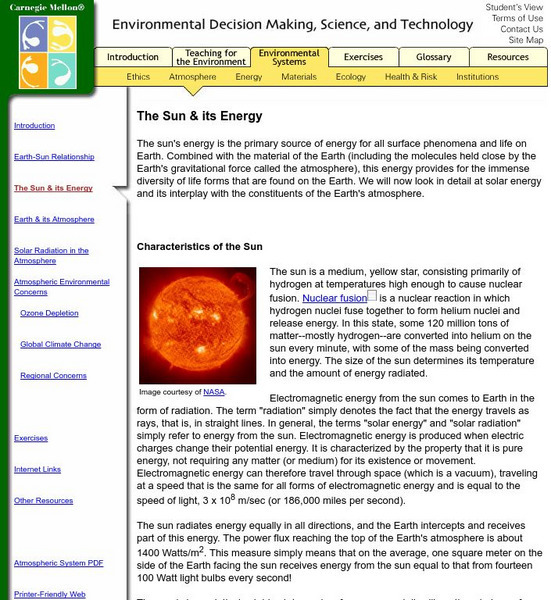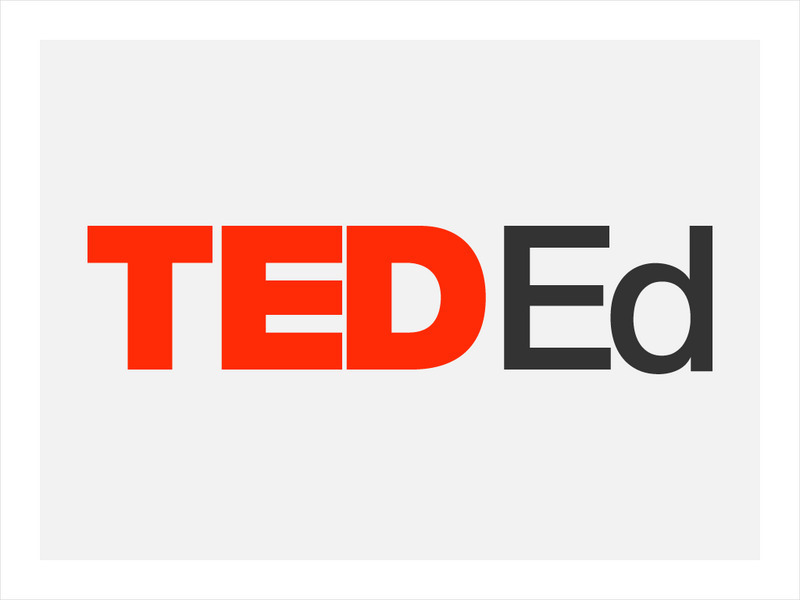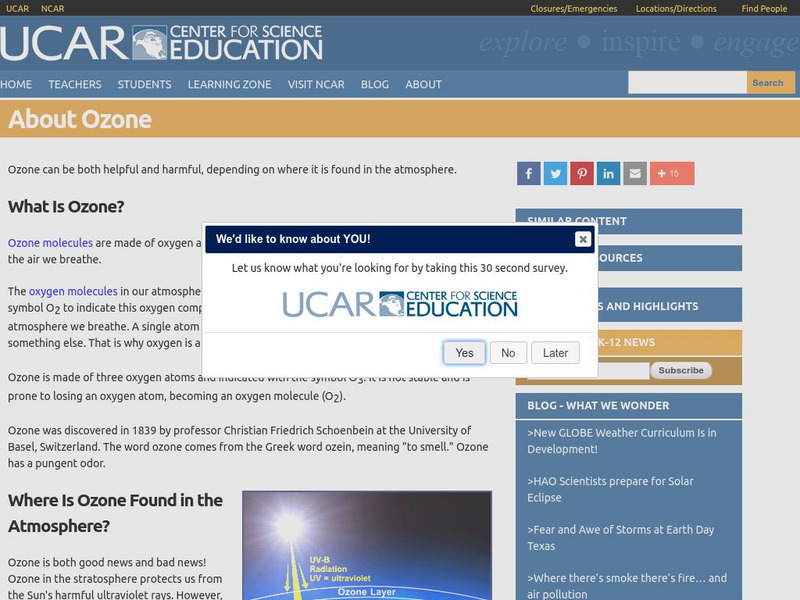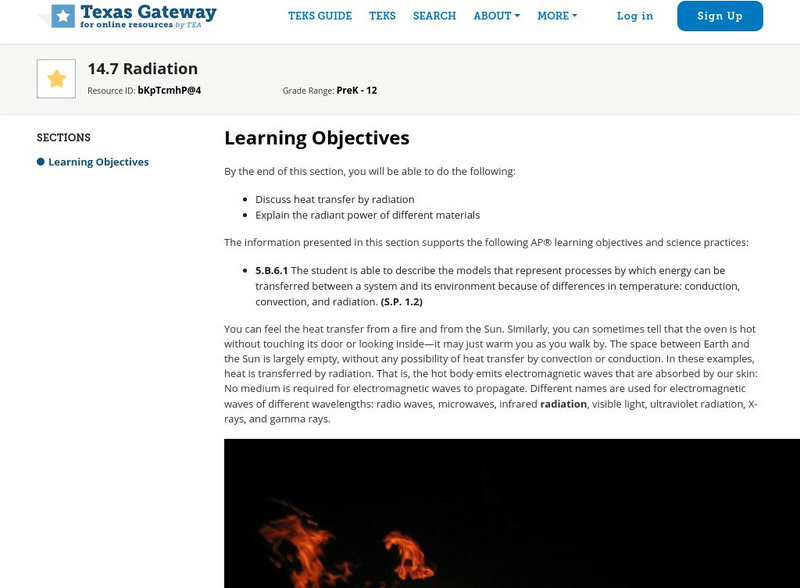Johns Hopkins University
The Electromagnetic Spectrum
NASA related site shows the entire Electromagnetic Spectrum. Provides a brief description of the expansive colored spectrum as well as a related link that provides more details.
Simon Fraser University
Chem1 Virtual Textbook: Light and Electromagnetic Radiation
In discussing the findings of James Clerk Maxwell and Michael Faraday, this site reveals information and formulas related to electromagnetic radiation and the electromagnetic spectrum.
Science Struck
Science Struck: A Simple Explanation of How Electromagnets Work
Gives a brief history of electromagnets and describes the parts of an electromagnet and how one works. Includes labeled illustrations and examples of their many applications.
Physics Classroom
The Physics Classroom: Light Waves/color: Electromagnetic and Visible Spectra
This illustrated physics tutorial explains the electromagnetic and visible spectra of light using illustrated examples and interactive practice problems.
Georgia State University
Georgia State University: Hyper Physics: Color
This site from Georgia State University discusses the location of visible light on the electromagnetic spectrum. Includes the wavelength values for various colors of light within the visible light spectrum.
Science Struck
Science Struck: Wavelength of Visible Light Spectrum
Explains where visible light fits into the electromagnetic spectrum and the wavelengths for the different colors we see.
Space Telescope Science Institute
Amazing Space: Star Light, Star Bright
This online exploration provides an opportunity to identify the different properties of waves and the relationship that exists between energy, wavelength, and frequency. Correlate images from the Hubble Telescope to the wavelength,...
Space Telescope Science Institute
Amazing Space: Star Light Star Bright
Learn all about stars and the electromagnetic spectrum in this series of activities.
Friesian School
Proceedings of the Friesian School/the Quantacized Atom
A very lengthy page from friesian.com discussing Bohr's theory of electronic energy levels and the explanation of commonly observed atomic emission line spectra. The concept of a photon and Einstein's observation of the photoelectric...
Carnegie Mellon University
Telstar: The Sun and Its Energy
The sun's energy is the primary source of energy for all surface phenomena and life on Earth. Combined with the material of the Earth (including the molecules held close by the Earth's gravitational force called the atmosphere), this...
Carnegie Mellon University
The Sun and Its Energy
The sun's energy is the primary source of energy for all surface phenomena and life on Earth. Combined with the material of the Earth (including the molecules held close by the Earth's gravitational force called the atmosphere), this...
Trinity College Dublin
The History of Mathematics: Young
A short sketch of the life and work of Thomas Young (1773-1829 CE). Traces early upbringing and education and his scientific discoveries and contributions.
University Corporation for Atmospheric Research
Ucar: Virtual Ballooning to Explore the Atmosphere Activity
In this computer-based virtual lab, students will learn about the layers of Earth's atmosphere by launching virtual balloons to collect temperature and pressure data at various altitudes. Given a limited number of balloon flights,...
Georgia State University
Georgia State University: Hyper Physics: Wave Particle Duality
The dualistic nature of light is discussed. The photoelectric effect and the Davisson-Germer experiment are contrasted as empirical evidence supporting each of the two views - particle and wave - of the nature of light. The photoelectric...
CK-12 Foundation
Ck 12: Physics: Wave Optics Study Guide
A study guide for concepts related to wave optics.
TED Talks
Ted: Ted Ed: What Is Color?
Colm Kelleher describes the physics behind colors- why the colors we see are related to the period of motion and the frequency of waves. [3:09]
University Corporation for Atmospheric Research
Ucar: About Ozone
A detailed overview of the chemistry of ozone and its role in the atmosphere. Students learn about the benefits and hazards of ozone. All information is reinforced through pictures, graphs, and learning activities. Learning activities...
Texas Education Agency
Texas Gateway: Heat and Heat Transfer Methods: Radiation
By the end of this section, you will be able to discuss heat transfer by radiation and explain the radiant power of different materials.
University Corporation for Atmospheric Research
Ucar: Learn: The Greenhouse Effect
A detailed overview of the greenhouse effect, with explanations about Earth's atmosphere gases referred to as greenhouse gases, and the factors that influence the heat-trapping ability of a greenhouse. All information is reinforced...

